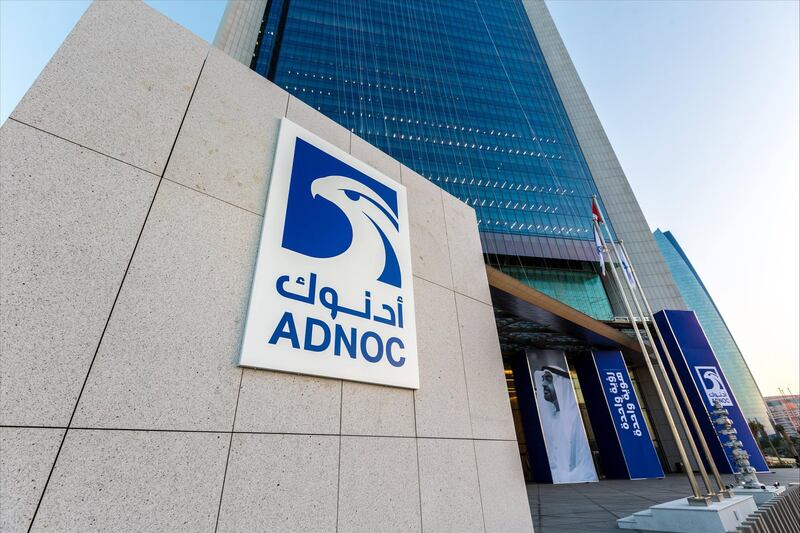Abu Dhabi National Oil Company and French oil major Total signed an agreement to explore partnerships in emissions reduction and carbon capture, utilisation and storage.
The two sides will explore opportunities to cut emissions, improve energy efficiency and increase the use of renewable energy in oil and gas operations. They will also explore opportunities in using CCUS in enhanced oil recovery.
"The agreement builds on our sustainability goal to decrease greenhouse gas intensity by 25 per cent by 2030, and reinforces Adnoc's commitment to responsible oil and gas production as we deliver on our 2030 smart growth strategy,” Dr Sultan Al Jaber, UAE Minister of Industry and Advanced Technology and Adnoc Group chief executive, said.
"This initiative will allow the two companies to join forces in several domains such as the reduction of carbon emissions on industrial sites, improvement of the energy efficiency in operations, and the development of innovative solutions and business models towards the CCUS chain," Total chairman and chief executive Patrick Pouyanne said.
CCUS is a a method for capturing carbon dioxide emitted during industrial processes and injecting it into oil wells to enhance oil recovery.
The Abu Dhabi group plans to expand its carbon capture programme to store about five million tonnes of carbon dioxide annually by 2030, up from 800,000 tonnes currently.
Harvesting carbon dioxide for use in oil wells has become popular among upstream operators looking for more sustainable ways to increase the productivity of mature fields.
Adnoc has used carbon dioxide captured by Al Reyadah Company, which sources gas from industrial factories in Mussafah, to enhance recovery at its wells.
The state-owned oil company also plans to harvest 2.4 million tonnes of carbon dioxide from the Shah gas plant, while the Habshan and Bab plants could allow for the capture and use of about 2 million tonnes of carbon dioxide.
Big oil companies have pledged to reduce their carbon footprint this year amid a change in narrative in the fossil fuel industry prompted by coronavirus-induced restrictions.
Movement restrictions, which led to a halt in global air and ground transport and curbed oil demand, also prompted oil and gas companies to re-evaluate their strategies.
BP wrote off oil and gas assets worth $17.5 billion this year and plans to achieve net zero carbon emissions by 2050.
Adnoc plans to explore the potential for new fuels such as hydrogen as it moves to reduce its carbon intensity over the next decade, Dr Al Jaber said earlier this week.








